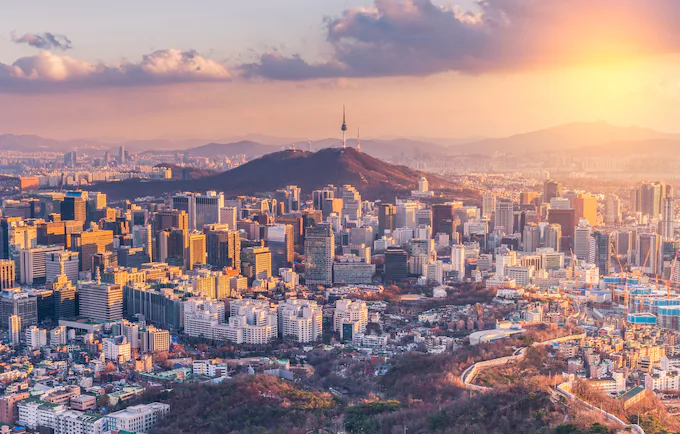Korea weighs integrated resort future
South Korea’s casino industry is enjoying a surge in revenue and visitation, but policymakers and tourism leaders say the momentum could fade as regional competition intensifies. At a Seoul roundtable this week, hospitality executives and academics urged the government to accelerate adoption of the integrated resort (IR) model before Japan opens its first casino complex in 2030.The country’s 17 foreigner-only casinos posted gross gaming revenue of KRW3.23 trillion (US$2.30 billion) in 2024, up 18.3 percent from the previous year, according to industry data. Visitor numbers also climbed 42.4 percent. But analysts caution the sector remains vulnerable, particularly with MGM Osaka set to open later this decade.
Japan’s first IR, developed by MGM Resorts International and Orix Corp., is projected to attract 20 million visitors annually, including as many as 7.6 million from South Korea. The Osaka project will include three hotels with 2,500 rooms, large-scale conference and exhibition halls, a retail complex, a 3,500-seat theatre and a cultural museum alongside its casino.
| Year | GGR | YoY GGR | Foreigner-Only Casino Visitation (YoY) | Key Competitor | Projected Annual Visitors | Projected Korean Visitors | IR Highlights |
|---|---|---|---|---|---|---|---|
| 2024 | KRW 3.23T (US$2.30B) | +18.3% | +42.4% | MGM Osaka (opens 2030) | ~20M | Up to 7.6M | Paradise City (2017); Jeju Shinhwa World (2018); Inspire (2024); Kangwon Land KRW2.5T expansion; non-gaming target 30% by 2032 |
Competitive Pressure From Asia
Industry experts argue that South Korea is already lagging behind Macau, Singapore and the Philippines, all of which have embraced large-scale IRs to drive tourism. “Our casino industry is still focused narrowly on tax revenue and job creation,” said Lee Min-jae of the Integrated Resort Tourism Research Center. “Globally, the trend has shifted toward IRs … But Korea has fallen behind. We need to catch up quickly.”
Casinos in South Korea were historically viewed as economic stopgaps, often deployed to stimulate weak regional economies. Today, the global trend has shifted toward destination-style resorts that combine gambling with broader entertainment. “They have evolved into high-value tourism assets, shifting from VIP-focused venues to cultural and entertainment hubs for the general public,” said Yoon Tae-hwan, professor of hotel and convention management at Dong-eui University. South Korea has begun experimenting with the model. Paradise City in Incheon, launched in 2017, includes a hotel, theme park and meeting facilities. Jeju Shinhwa World followed in 2018, while Inspire Entertainment Resort debuted in March 2024 with three hotels, a 15,000-seat arena, a glass-domed water park and outdoor performance spaces.
Kangwon Land, the country’s only casino that permits local residents, is also shifting strategy. In 2023, it announced a KRW2.5 trillion redevelopment plan to expand gaming floors, add shopping and triple the number of restaurants. The operator aims to raise non-gaming revenue from 13 percent today to 30 percent by 2032.Despite recent progress, experts say Korea’s regulatory framework remains fragmented. Unlike Japan and Singapore, which have centralised agencies to both regulate and promote their casino industries, South Korea splits responsibilities between the Ministry of Culture, Sports and Tourism and the National Gambling Control Commission.
“The National Gambling Control Commission’s role is too limited and dispersed to be effective,” said Lee Jae-seok, professor of tourism at Gangneung-Wonju National University. “We need a single body that can both regulate and lead.” Others argue the government must clarify its long-term vision. “South Korea must decide if IRs are a tool to revitalize underdeveloped regions or positioned as core tourism assets,” said Seo Won-seok, dean of the College of Hotel and Tourism Management at Kyung Hee University. “This should be a key topic in upcoming discussions.”
Our casino industry is still focused narrowly on tax revenue and job creation … But Korea has fallen behind. We need to catch up quickly.
A Pivotal Test Ahead
Industry leaders warn that the arrival of MGM Osaka, less than two hours by plane from Incheon, will accelerate competitive pressures. Earlier this week, members of the Korea Casino Tourism Association and Korea Tourism Society visited Osaka to study MGM’s strategy.
“Korea faces a pivotal test … to strengthen [its] global standing in integrated resorts,” said Choi Cheol-gyu, acting CEO of Kangwon Land, during the visit. For now, South Korea’s casino industry remains profitable. But with Japan preparing to enter the market and established rivals continuing to expand, tourism leaders say the country has little time to define its next move.









